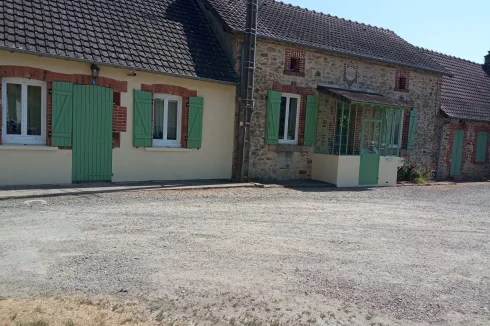Social Charges and French Property Sales
Friday 04 September 2020
Notaires are incorrectly imposing social charges on some property sales by EEA nationals.
Over the past few months, several readers have contacted us concerning social charges being imposed on the sale of their home in France.
These charges (called the prélèvements sociaux) are imposed at the rate of 9.7% on the net capital gain from the sale.
In addition to the social charges, notaires are also imposing the solidarity charge (prélèvement de solidarité) of 7.5%, giving a total gross tax rate of 17.2% on the sale.
In the cases we have seen, both charges have been applied on the sale of second homes owned by UK nationals who are non-residents, in one case with incorrect charges amounting to nearly €30K.
Since 1st January 2019, EEA nationals who are not in the French health system, but in the health system of another EEA Member State do not pay social charges on capital income and gains (revenus du patrimoine), albeit they pay the solidarity tax.
The change in the law was introduced after years of litigation in France and the European courts, which confirmed that imposition of social charges on taxpayers already affiliated to a compulsory social security system in an EEA country (or Switzerland) was contrary to the principle of unity of social security legislation within the meaning of European law.
Clint Goffin van Aken, a bi-lingual avocat who has been involved in several legal actions over social charges, states that: "Our firm has been regularly contacted by sellers in this situation and we have intervened either at the time of the signature of the sale to invite the notary not to pay the CSG and CRDS or after the payment to obtain the reimbursement from the tax authority."
He states that many sellers are unaware of their entitlement to an exemption and that if they do not make the notaire aware they are likely to taxed at the full rate of 17.2%.
It is somewhat surprising that such errors occur as on the form that notaires need to complete (F2048) for calculating the capital gains, it makes it clear that social charges apply, excepting: 'des personnes qui ne sont pas affiliées au régime obligatoire francais de sécurité sociales mais qui relèvent d’un régime de sécurité sociales d’un autre Etat membre de l’UE, de l’EEE ou de la Suisse'.
One of the problems for claimants and notaires is the proof that is required to obtain exemption. Maitre van Aken states that: "Unfortunately there is no standard documentary proof; it is a set of elements that we produce to justify the fact that our clients fall under the social legislation of the state concerned."
Although the examples we have seen concern non-residents selling a second home, the same rule applies to those resident in France on an S1 health certificate, which also grants them exemption to the social charges on the sale of property in France other than their principal residence, which is exempt. This is because those on an S1 are still attached to the health system of their former EEA country of residence.
Foreign nationals from outside of the EEA are not entitled to the exemption, which also continues to be a source of grievance and litigation. See our article Non-European Residents Liable for Social Charges for more information.
From 1st January 2021, UK residents who are not on an S1 will be part of that group.
Thank you for showing an interest in our News section.
Our News section is no longer being published although our catalogue of articles remains in place.
If you found our News useful, please have a look at France Insider, our subscription based News service with in-depth analysis, or our authoritative Guides to France.
If you require advice and assistance with the purchase of French property and moving to France, then take a look at the France Insider Property Clinic.





